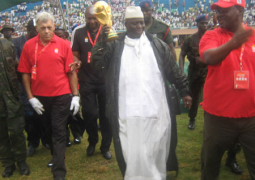The availability of affordable energy is essential for the development of any nation, including our own.
Access to an affordable and reliable energy service is essential for human well-being, and the country’s economic development.
Lack of access to modern energy serves as a push factor for many people to move from the rural areas to towns and cities, where energy is more accessible.
The proportion of Gambian households with access to improved cooking stoves and modern cooking fuels, as well as mechanical power is very low; yet power cut is also frequent.
It is very clear that energy deeply influences the well-being of individuals, since energy access enables access to water, increases agricultural productivity; improves heath care delivery, and quality education, among others.
There is, therefore, an absolute need to expand the rural electrification project to enable more communities in rural and peri-urban areas to also have their livelihoods improved.
Although energy is not explicitly mentioned in the MDGs, access to modern energy services is, no doubt, an essential condition for the attainment of the MDGs and sustainable development.
In order to improve the quality of life of our people, most of whom lack access to modern energy services, we must invest more in the sector, as a country.
As Gambians, we want to enjoy consistent electricity supply, especially during this holy month of Ramadan, as people do a lot of shopping at one go.
So, in order to keep them in good condition for some time the power supply must be consistent.
There is absolute need to improve domestic cooking services, especially within the Greater Banjul Area, and to increase access to mechanical power and individual electricity services.




